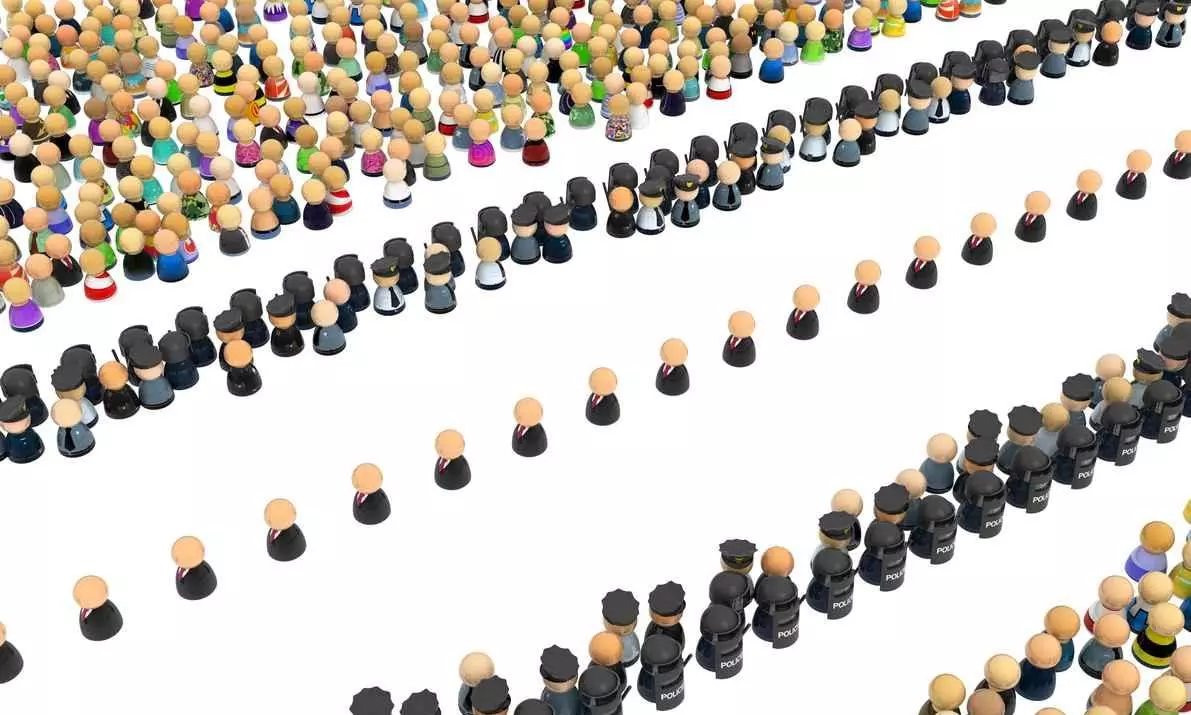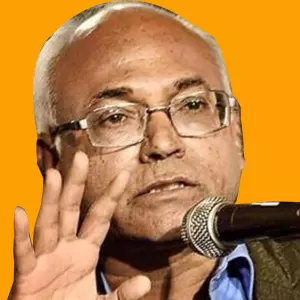
- Home
- India
- World
- Premium
- THE FEDERAL SPECIAL
- Analysis
- States
- Perspective
- Videos
- Sports
- Education
- Entertainment
- Elections
- Features
- Health
- Business
- Series
- In memoriam: Sheikh Mujibur Rahman
- Bishnoi's Men
- NEET TANGLE
- Economy Series
- Earth Day
- Kashmir’s Frozen Turbulence
- India@75
- The legend of Ramjanmabhoomi
- Liberalisation@30
- How to tame a dragon
- Celebrating biodiversity
- Farm Matters
- 50 days of solitude
- Bringing Migrants Home
- Budget 2020
- Jharkhand Votes
- The Federal Investigates
- The Federal Impact
- Vanishing Sand
- Gandhi @ 150
- Andhra Today
- Field report
- Operation Gulmarg
- Pandemic @1 Mn in India
- The Federal Year-End
- The Zero Year
- Science
- Brand studio
- Newsletter
- Elections 2024
- Events
- Home
- IndiaIndia
- World
- Analysis
- StatesStates
- PerspectivePerspective
- VideosVideos
- Sports
- Education
- Entertainment
- ElectionsElections
- Features
- Health
- BusinessBusiness
- Premium
- Loading...
Premium - Events

While Rahul Gandhi went against the understanding of three PMs of his family, the Brahmin-Bania-Kshatriya leaders of RSS-BJP doggedly opposed caste census
Why has the Narendra Modi government suddenly decided to take up the caste census now even though the RSS and BJP were against it as part of their Sanatana Dharma ideology all along? Is the RSS fully aligned with the decision?
Though the OBCs within the RSS-BJP had been asking for such an enumeration, the Brahmin-Bania-Kshatriya leaders were against it. Even the monopoly capitalists—mostly from the Brahmin-Bania communities—were against a caste census.
Concerns of big businesses
The big businesses worried that once the 50 per cent Supreme Court cap got removed, the reservation issue would reach the private sector. After the caste data is put before the court, it may not have an excuse not to do so, as it has been repeatedly asking for a credible figure of OBC population.
The monopoly houses knew that the next step by OBCs and Opposition parties would be to push for reservations in the private sector. In fact, immediately after the government’s decision, the Congress Working Committee (CWC) met and demanded reservations in the private sector. The CPM, though weakened, except in Kerala, also passed in its Madurai conference that reservations should be extended to the private sector.
Also read: Caste census: Congress steps up efforts to own narrative, deny political mileage to BJP
But is the RSS-BJP realising that Rahul Gandhi’s image among the OBCs and farmers of India is growing and Narendra Modi’s weakening?
Rahul Gandhi and caste census
The Congress and Rahul Gandhi—pushed to a corner by the RSS-BJP and the monopoly capital—had no way but to take up the issue of caste census and seek the removal of the 50 per cent cap before the 2024 elections to win over at least a section of OBCs.
In fact, there was no unanimity within the Congress, until the RSS-BJP announced the decision to do a caste census. But in the post-Bharat Jodo Yatra rallies, Rahul made it his main campaigning point.
After Amit Shah’s attack on BR Ambedkar in Parliament, the Congress, at the instance of Rahul, adopted a new slogan: “Jai Bapu, Jai Bhim, Jai Samvidhan”. This was also unexpected—a party being led by, among others, a man from the Nehru-Gandhi family has changed so much.
Rahul’s altered avatar
Rahul has now become a movement leader after his Bharat Jodo and Bharat Jodo Nyay Yatra. He is not a leader aspiring only for the prime minister’s position. There is a social reform aspect in his activism.
Also read: Kharge writes to PM Modi, urges him to consult all political parties on caste survey
As the BJP under Modi, an OBC, pushed Rahul to a wall with constant insults, attacks, and cases, he had to fight back with the twin weapons of social reform and politics. And once a leader goes beyond power politics and takes to movement politics, any kind of harassment, including court cases and losing parliament membership, becomes a weapon of determination, sacrifice, and willingness to fight for the people. That gives a different image to members of eminent political families such as Rahul’s.
Until Rahul took up the issue of caste census, reservation was mainly an issue of OBC regional leaders, social organizations, and so on. They have been, of course, demanding a caste census from different forums ever since the Supreme Court imposed a 50 per cent cap on reservations. But it could not become a national issue.
After VP Singh, who steered the implementation of the Mandal Commission report in central jobs, no other upper caste leader has owned the agenda of OBCs like Rahul has. But Rahul’s family, social and political location is far more different than VP Singh’s.
Moving away from family tradition
Rahul’s great grandfather discontinued the caste census as the prime minister in 1951. His grandmother did not implement the Mandal Commission report with a view that it was retrograde and would go against the merit theory of the elite of her times. His father opposed the implementation of the Mandal Commission report on the same ground of merit.
But Rahul has quite determinedly gone against the understanding of three prime ministers of his family. It was a risky step given his background. But he realised that the Backward Classes got alienated from the Congress because of Nehru, Indira, and Rajiv’s approach to the OBC reservation.
Also read: Announce 'clear timeline' for every stage of caste survey: CWC to Centre
However, Modi gave him a chance to own the social justice agenda more firmly than any other upper caste leader in Indian history. The RSS-BJP thought of marginalizing the Nehru-Gandhi family by attacking Rahul as a “joker”. But he turned the joke on them instead.
Rahul became Opposition leader with that agenda. The Congress won in Telangana and Karnataka with that agenda. He pushed those governments to go for caste census. Congress president Mallikarjun Kharge is his go-getter as the most senior Dalit leader in the country.
An uncomfortable subject
My generation has repeatedly heard during the Mandal and post-Mandal discourses that caste was a British construct. Some even said that it was a Muslim construct. All the left-liberal upper-caste intellectuals opposed OBC reservations as a retrograde step in a secular democracy.
Even after the Congress put it in the 2024 election manifesto, most upper-caste intellectual supporters of the party were uncomfortable, as it was seen as a divisive agenda. All Left Front governments in the past were against such caste count in what they call a “class society”.
The Kerala Left Front government, though headed by an OBC, Pinarayi Vijayan, was not willing to take a caste count even after the 2024 elections. Telangana did that. Karnataka approved the 2015 caste survey. Bihar, of course, took the first step. Now, how can all these people, who were earlier avoiding counting caste populations in their states, avoid the central government caste census?
Also read: As Centre prepares to embark on national caste census, here's how Telangana did it
Yogi Adityanath—a strong opponent of the caste census—now welcomes it. Mamata Banerjee has always been silent about it. Normally, Bengali “bhadralok” intellectuals ignored caste as if it never existed, particularly in Bengal. Now they, too, will be counted. Assam Chief Minister Himanta Biswas Sarma, I am sure, must be boiling within himself, unable to shout out his opposition to the Cabinet approval.
A divisive issue now a unifier
Before the Telangana caste survey, some upper-caste forces moved high court for the inclusion of a “No Caste” clause in the survey manual, and several enumerated in that category. Will they do so in the national caste census as well?
Caste is a mystical psychological category. It makes people crazy when entitlements are assigned on the basis of its oppressive history. It makes a progressive a reactionary when the oppressed caste’s shade reaches the comfort zone of the oppressor castes, like the shade of Phule haunts his contemporary Brahmins in the film Phule.
The RSS-BJP have to organise serious re-education camps for their karyakartas and leaders. The caste census is a national step against the Brahmanic tradition and more so from the age-old Sanatana Dharma.
However, some of their ideologues started a new explanation that the caste census will work for Hindu unity. Therefore, what was seen as a divisive issue now becomes a unifier. Good if such a change of explanation is part of a change of heart. But the question still remains: will the RSS allow the caste census to happen?
(The Federal seeks to present views and opinions from all sides of the spectrum. The information, ideas or opinions in the articles are of the author and do not necessarily reflect the views of The Federal)


